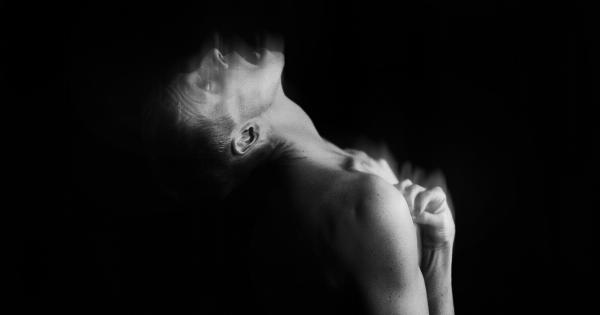Depression is a complex mental health condition that affects millions of people worldwide.
While some cases of depression are easily identifiable, there is a subset of individuals who suffer from what is known as “informal depression.” Unlike clinical depression, informal depression is often overlooked and misunderstood, making it even more challenging for those affected to seek help and find relief.
Recognizing the Unseen Signs
Informal depression is characterized by a range of subtle signs and symptoms that may not be immediately apparent to the individual or their loved ones.
Despite the absence of overt indicators, the impact of informal depression is just as significant as that of clinical depression. By becoming more aware of these hidden signs, it is possible to shed light on the issue and provide support for those in need.
The Role of Persistent Sadness
Sadness is a common emotion experienced by everyone at some point in their lives. However, in cases of informal depression, this sadness becomes pervasive and enduring.
Individuals may feel persistently down, hopeless, or empty without any apparent reason. The sadness is not related to a specific event or situation and does not tend to resolve itself over time.
Changes in Sleep Patterns
While depression commonly affects sleep patterns, informal depression may manifest as subtle alterations in sleep habits. Some individuals may find it difficult to fall asleep or remain asleep, leading to insomnia.
On the other hand, some individuals may find themselves sleeping excessively, a condition known as hypersomnia. These changes often go unnoticed or are attributed to external factors.
Loss of Interest and Pleasure
Anhedonia, the inability to derive pleasure from activities once enjoyed, is a hallmark symptom of both clinical and informal depression.
Individuals experiencing informal depression may gradually lose interest in hobbies, socializing, or engaging in previously enjoyable activities. This loss of interest often goes unnoticed or is dismissed as a temporary phase.
Fluctuations in Appetite
Another subtle sign of informal depression is a change in appetite. Some individuals may experience a decrease in appetite, resulting in noticeable weight loss.
Others may turn to food for comfort, leading to an increase in appetite and subsequent weight gain. Fluctuations in appetite can have significant physical and psychological implications yet are frequently overlooked.
Increased Irritability
It is not uncommon for irritability or moodiness to be associated with depression. In informal depression, irritability can become a prominent symptom.
Individuals may find themselves becoming easily annoyed, agitated, or angered by even minor inconveniences or trivial matters. This persistent irritability is often misconstrued as a solely personality or situational issue.
Fatigue and Low Energy Levels
Feeling drained or constantly fatigued is a common symptom of depression. Individuals with informal depression often experience a lack of energy and motivation, making even simple daily tasks feel overwhelming.
This chronic fatigue can be difficult to recognize as a symptom of depression without a proper understanding of informal depression.
Difficulties in Concentration and Memory
Depression can significantly impact cognitive function, impairing concentration, and memory. Informal depression often presents as forgetfulness, limited focus, and difficulty making decisions.
These cognitive challenges may go unrecognized or attributed to stress or other external factors, delaying the identification of the underlying mental health issue.
Withdrawal and Social Isolation
Individuals with informal depression often withdraw from social interactions, preferring to be alone rather than engage with others. They may cancel plans and avoid social events, leading to a sense of isolation and deepening their depressive symptoms.
This social withdrawal is often perceived as a personal choice rather than a symptom of depression.
Physical Ailments and Unexplained Pain
Informal depression can also manifest as physical symptoms. Individuals may experience unexplained pain, such as headaches, stomachaches, or muscle aches, without an identifiable medical cause.
These physical ailments often lead to medical investigations, but the underlying mental health aspect may be overlooked.
The Importance of Mental Health Awareness
Recognizing the signs and symptoms of informal depression is crucial for promoting mental health awareness and destigmatizing it.
Educating ourselves about the hidden indicators allows us to support loved ones and provide them with the resources they need for recovery.
Seeking Help and Finding Relief
If you or someone you know experiences any of the mentioned signs of informal depression, it is essential to encourage them to seek professional help.
Mental health professionals can provide diagnosis, support, and treatment options, such as therapy or medication. Remember, informal depression is as valid and deserving of attention as clinical depression.
Supporting Loved Ones
Offering support to someone with informal depression requires empathy, understanding, and patience. Encourage open conversations about their feelings and experiences and avoid judgment.
Providing a safe space for them to express themselves can be a crucial step towards their journey to recovery.
Promoting Mental Well-being
Preventing informal depression starts with promoting mental well-being in our communities.
Advocating for self-care practices, healthy coping mechanisms, and destigmatizing mental health issues can help create an environment where those affected by informal depression feel comfortable seeking the support they need.
Conclusion
Informal depression is a hidden struggle faced by many individuals. By familiarizing ourselves with the signs and symptoms, we can shed light on this often-overlooked aspect of mental health.
Through awareness, understanding, and support, we can help those affected navigate their journey to recovery and break the stigma surrounding informal depression.

























